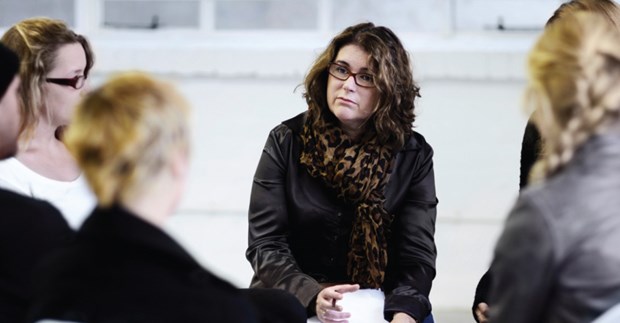Volunteers play an essential role in serving their community. One such example is the volunteers who provide service to the Richmond Restorative Justice Program at Touchstone Family Association.
Restorative Justice is the philosophy that serves as the foundation for this diversion program. Repairing harm, restoring relationships and rebuilding community are at the core of this alternative approach to our traditional justice system.
Restorative justice volunteers, in their role as facilitators, assist children, youth and adults, who have committed a criminal offence and have accepted blame. The participants are given the opportunity to repair the harm they did to society, often meeting with victims and other affected parties, including supporters for both sides, in a safe and respectful process.
Thus, reparation and restoration is facilitated by and for the community.
Restorative justice volunteers are critical to the success of the Richmond Restorative Justice Program. They invest both time and effort in carrying out their duties. As professionally trained volunteer facilitators, their responsibilities include identifying and contacting everyone who has been affected by the crime or conflict; interviewing all of the parties and; preparing and facilitating community justice forums (Circle Process).
Inside the forum, Facilitators help guide the participants in a collaborative discussion that allows them to share perspectives, gain understanding and explore everyone’s needs and obligations in an effort to hold people accountable and heal what has been broken.
Outcomes are reached through consensus and everyone must be satisfied with the agreements that were made.
The work can be hard and exhausting, but the volunteers who do this work often remark that their greatest reward is the satisfaction they get from seeing people heal before their eyes from an awful experience.
They can also take comfort in knowing their commitment made their own community a little safer by helping deliver the justice that everyone needs.
Author: Haroon Bajwa,
Restoration Justice Coordinator
Question:What are the benefits of volunteering in your community?
Answer:There are many rewards in serving your community, including some of the following:
• Satisfaction in helping others
• Serving a cause you are passionate about
• Getting free training and Learning new skills
• Building your resume
• Contributing to Self-Development
• Meeting people and making friends
Interested to become a Restorative Justice Volunteer?
We are looking for volunteers interested in becoming trained restorative justice facilitators willing to assist people, including victims and offenders, affected by crime or conflict in the community.
To learn more about becoming a volunteer or to apply, visit us at www.touchstonefamily.ca.
Successful applicants are provided training. Next training session: May 22-24, 2015.
The deadline for volunteer applications to be submitted: April 30, 2015.



